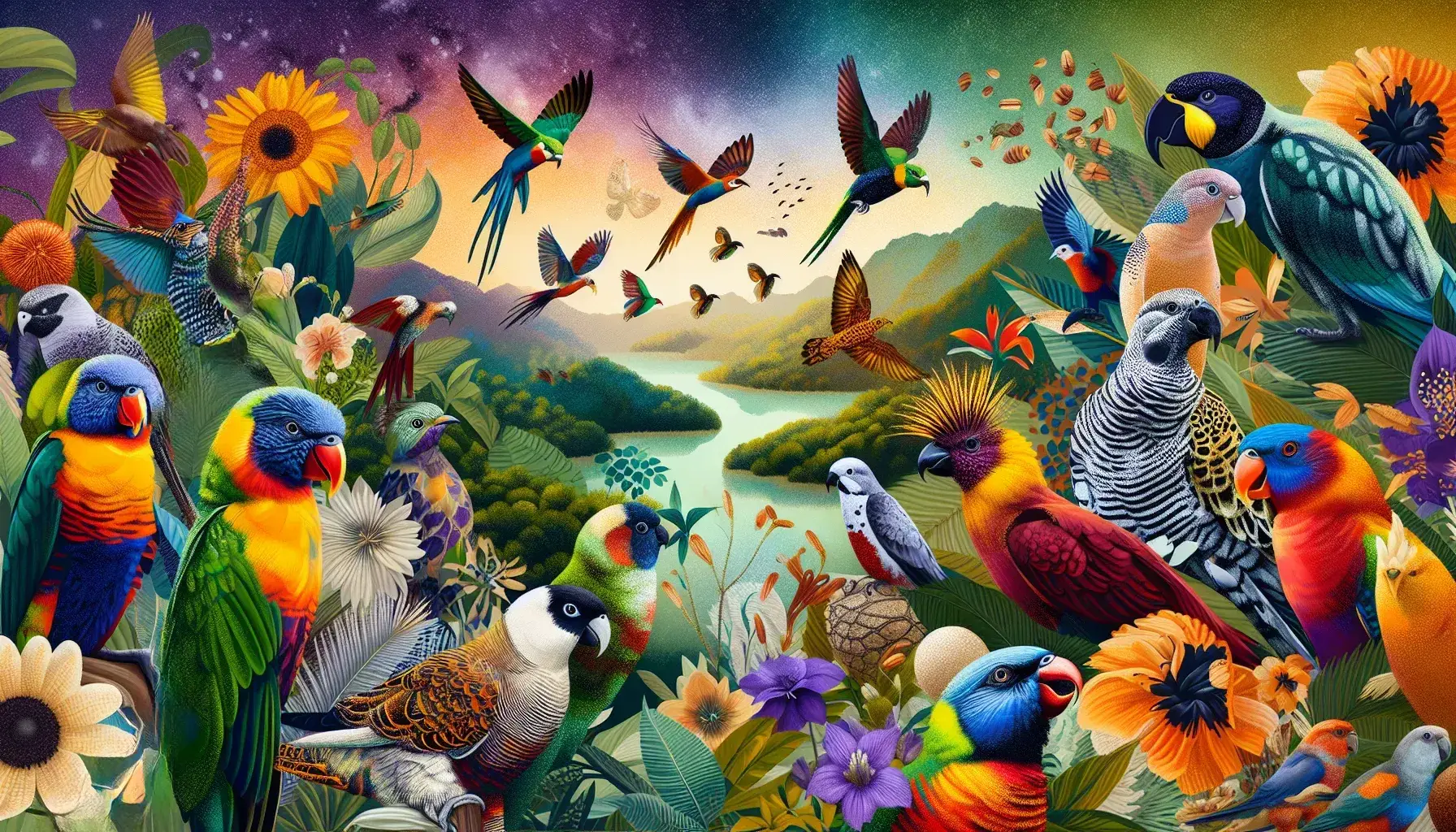The Untold Benefits of Bird Nutrition: Spotlight on Exotic Avian Diets

Owning an exotic avian pet comes with the responsibility of understanding their unique nutritional requirements. Unlike their more common avian counterparts, exotic birds often have specialized needs that must be met for their overall health and well-being.
Diving into Nutritional Needs of Exotic Avian Species
One of the key distinctions in exotic avian diets is the variety of specialized foods they require. Whether it's the nectar-based diet of hummingbirds and lorikeets or the seed-focused diet of hookbill parrots and cockatoos, it's crucial for owners to understand and cater to these dietary needs. Ensuring the right balance of nutrients is vital to their long-term health.
Feathers are not only a defining feature of exotic birds but also an indicator of their overall health. A well-rounded diet plays a pivotal role in maintaining vibrant feather colors and ensuring the strength and integrity of these essential assets. By incorporating a diet rich in specific vitamins and minerals, exotic bird owners can help maintain the brilliance and resilience of their pets' plumage.
The Role of Diet in Feather Health and Color Vibrancy
Moreover, proper nutrition aids in fortifying feathers against environmental stressors, making them less prone to damage. Recognizing this correlation between diet and feather health empowers owners to make informed decisions when selecting the best diet for their avian companions.
Hummingbirds and lorikeets are nectar-feeding birds with highly specialized dietary needs. Their diets primarily consist of nectar, pollen, and small insects. It's essential for owners to recreate this natural diet as closely as possible in a domestic setting.
Related Article: Combatting Pet Obesity: Holistic Approaches to Weight Management and Nutritional Balance
Nourishing Nectar Eaters: Diets for Hummingbirds and Lorikeets
Providing a balanced diet for these avians involves offering specially formulated nectar mixes that mimic the composition of natural nectar sources. Moreover, supplementing their diet with high-quality pollen and protein sources ensures that these birds receive a comprehensive nutritional profile that fulfills their specific dietary requirements.
Hookbill parrots and cockatoos have distinct dietary requirements compared to other avian species. Known for their unique beak shapes and eating habits, these birds require tailored diets that factor in their predisposition towards seed consumption.
Owners need to ensure that the diet provided to hookbill parrots and cockatoos include an assortment of seeds, nuts, fruits, and vegetables to achieve nutritional diversity. This diverse diet helps prevent malnutrition and fulfills their specific needs, contributing to their overall health and longevity.
A Complete Guide to Diets for Hookbill Parrots and Cockatoos
Seed-eating birds, including finches and canaries, have specific dietary needs centered around seeds. While seeds are a staple part of their diet, it's vital to understand that not all seeds offer substantial nutritional value.
Owners must carefully select seeds that are high in essential nutrients such as vitamins, minerals, amino acids, and healthy fats. Supplementing seed-based diets with fresh fruits, vegetables, and specialized formulated pellets enhances the overall nutritional balance required for these species.
Specialized Nutritional Requirements of Seed-Eating Birds
Vitamins play a critical role in maintaining an exotic bird's overall health. Vitamins such as A, D, E, K, C, and several B-complex vitamins are fundamental to ensure proper growth and vibrant feather colors. Deficiencies in these essential nutrients can lead to various health issues affecting both physical appearance and internal well-being.
A well-rounded diet encompassing fresh fruits, leafy greens, fortified pellets, and vitamin supplements tailored to specific needs ensures that exotic birds receive optimal levels of essential vitamins essential for their overall health and wellness.
Vitamin-Rich Diets for Healthy Plumage and Growth
When crafting diets for exotic avian pets at home, it's crucial for owners to strive towards balance and variety. A well-balanced diet not only caters to an exotic bird's specific nutritional needs but also contributes to their overall happiness and quality of life.
Integrating fresh fruits, vegetables, high-quality pellets, nuts, seeds, protein sources, and specialized supplements form the foundation of a comprehensive avian diet plan. Furthermore, staying informed about individual species' dietary preferences allows owners to tailor diets accordingly, ensuring optimal health outcomes for their beloved pets.
In conclusion, understanding the nuanced dietary needs of exotic avian species is pivotal in providing them with healthy and fulfilling lives. By acknowledging the unique nutritional requirements inherent in these species and tailoring diets accordingly while considering factors such as feather health, color vibrancy, specialized feeding behaviors, and vitamin-rich nutrition – owners can actively contribute to the well-being of their exotic avian companions.
Frequently Asked Questions
Exotic birds have specialized dietary requirements that differ from common species. For instance, nectar-feeding birds like hummingbirds need nectar and pollen, while seed-eating birds require high-quality seeds supplemented with fruits and vegetables. Understanding these unique needs is essential for their health and well-being.
A well-balanced diet is crucial for maintaining vibrant feather colors and overall feather health in exotic birds. Nutrients such as vitamins A, E, and D contribute to feather strength and resilience, helping protect them from environmental stressors and ensuring a healthy appearance.
Hookbill parrots require a diverse diet that includes seeds, nuts, fruits, and vegetables. This variety ensures they receive essential nutrients needed for their health. It's important to avoid relying solely on seeds, as a balanced diet helps prevent malnutrition and supports their longevity.






